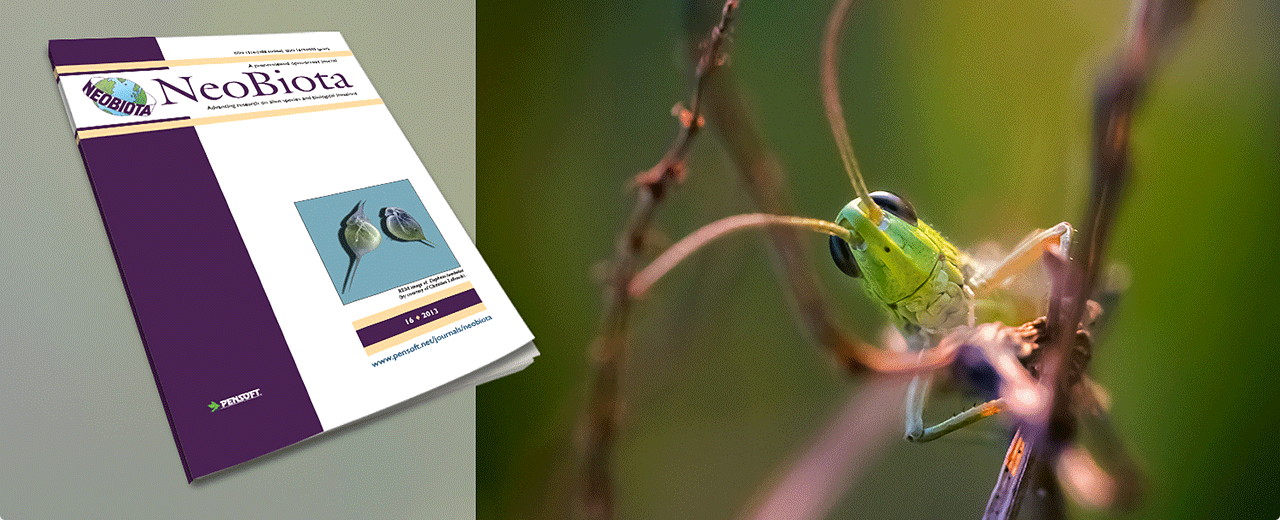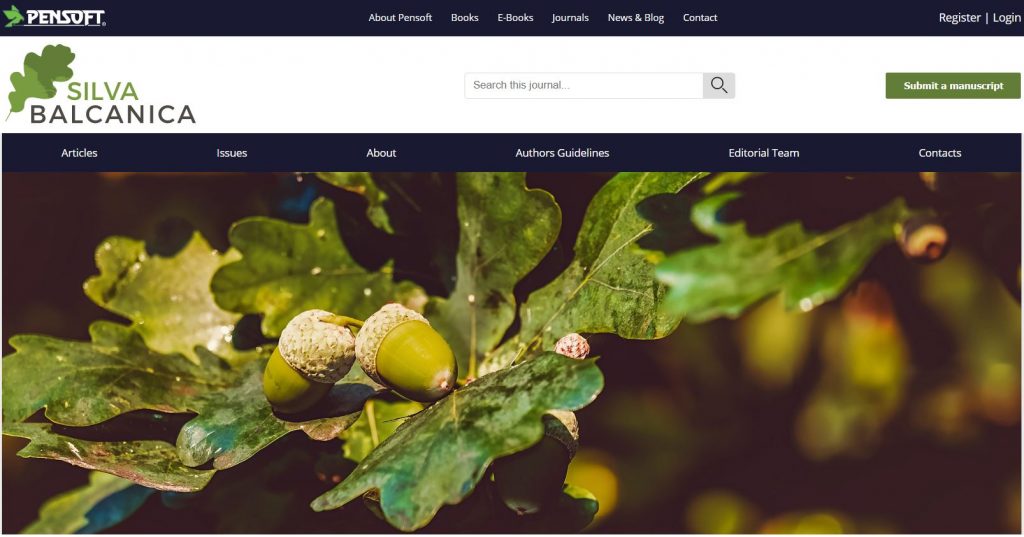NeoBiota, a leading peer-reviewed, open-access journal dedicated to the study of alien species and biological invasions, announces the appointment of new Editors-in-Chief.
The new leadership team sees Dr. Ana Novoa Perez, Prof. Tammy Robinson, Prof. Phil Hulme and Dr. Andrew (“Sandy”) Liebhold join forces to bring a wealth of expertise to NeoBiota.
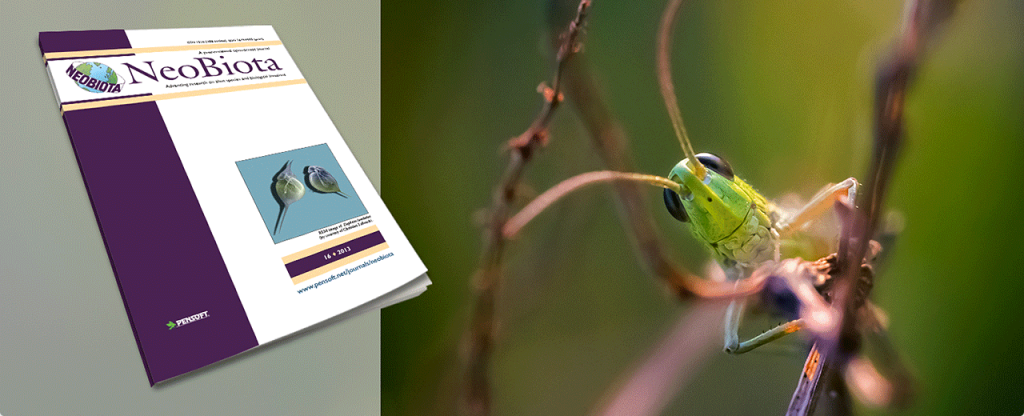
They have already begun working in close collaboration with Prof. Ingolf Kühn, who has been serving as Editor-in-Chief ever since the journal was founded in 2011. Throughout these years, he has played a pivotal role in establishing NeoBiota as a leading platform for invasion science, contributing to the journal’s growth and impact.
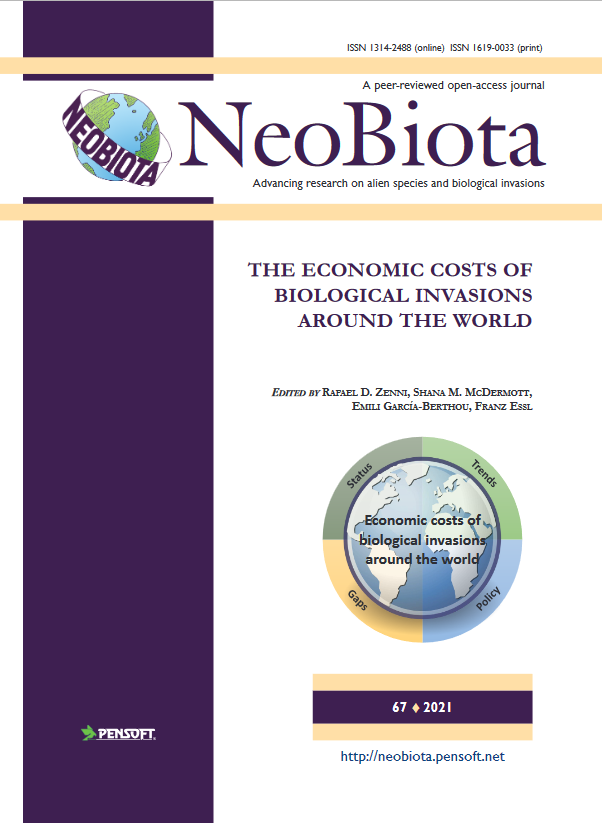
“After more than 13 years, I thought that it was time to hand the responsibilities for NeoBiota over to dedicated colleagues. We thought of our dream team, and fortunately, all agreed without hesitation.”
Covering both an extensive range of invasion science fields and a wide international representation, this diverse editorial team will be looking to maintain NeoBiota‘s reputation as a leading outlet in its field and expand its global reach and impact.
Today, NeoBiota is one of the most prominent open-access journals in biological invasions, with a Journal Impact Factor of 3.8 and a Scopus CiteScore of 8.1 for 2023. Currently, the journal ranks 11th in the Biodiversity Conservation category on Web of Science and 9th in the Ecological Modelling category on Scopus.
Meet the editors

Dr. Ana Novoa is a scientist at the Estación Experimental de Zonas Áridas of the Consejo Superior de Investigaciones Científicas (EEZA-CSIC) in Spain and the Institute of Botany of the Academy of Sciences of the Czech Republic. Her research explores the socioecological factors influencing the invasion and management of alien species, with a particular interest in the human and social dimensions of biological invasions. She is also Secretary of the European Group on Biological Invasions (NEOBIOTA).
“I’m honored to collaborate with Ingolf, Tammy, Phil and Sandy in guiding the journal forward,” said Ana. “I look forward to supporting innovative research across the diverse aspects of invasion science.”
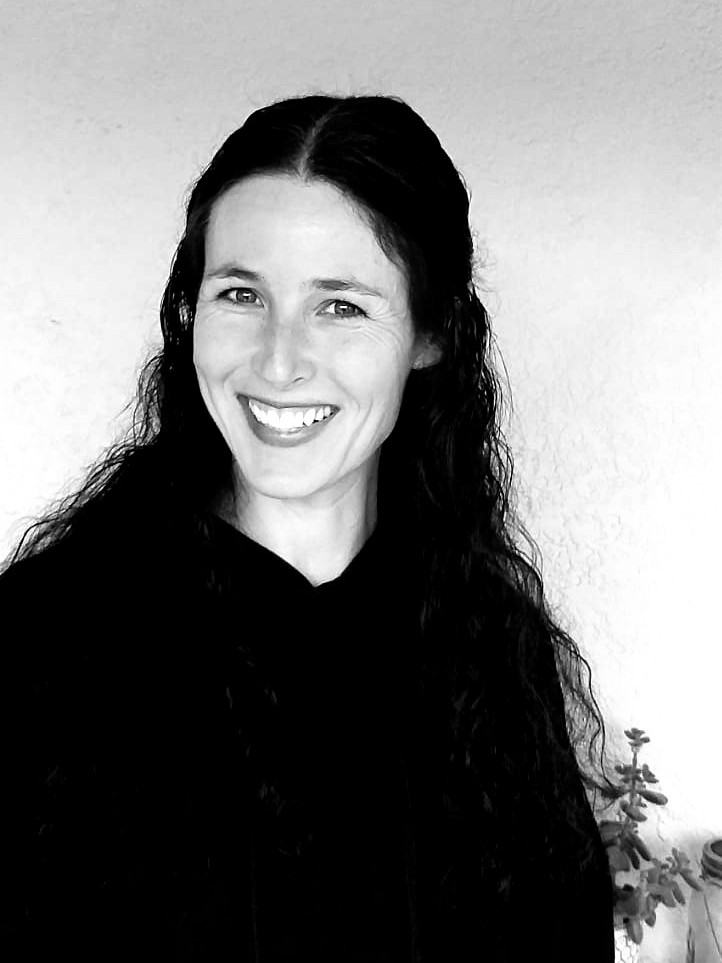
Prof. Tammy Robinson holds a Research Chair at the Centre for Invasion Biology, Stellenbosch University, South Africa. She is a marine invasion biologist with an ecological background, an interest in evidence-based management of alien species, and a focus on protected areas. She is an associate member of INVASIVESNET, the global network of networks on invasive species.
“I’m really excited about joining this dynamic team,” said Tammy. “I’m looking forward to fostering an increase in the number of aquatic papers that appear in NeoBiota.”
Prof. Philip Hulme is a Distinguished Professor of Plant Biosecurity at Lincoln University, New Zealand, and Director of the Centre for One Biosecurity Research, Analysis and Synthesis (COBRAS). His research focuses on predicting risks associated with plant invasions, examining traits of successful invasive species, identifying introduction pathways, assessing spread rates, evaluating habitat vulnerability, quantifying impacts, and predicting the influence of climate change on invasive species distributions. His work also includes broader assessments of biosecurity policy and implementation across the human, animal, plant and ecosystem sectors, emphasizing human perspectives, such as trade and economic impacts. Having authored, reviewed, and edited numerous papers in NeoBiota, he was also one of the people behind the journal’s foundation.
“Having been involved with the journal since its foundation it is a real pleasure to have the opportunity to shape its future and continue the amazing work Ingolf has undertaken to ensure NeoBiota is THE leading biological invasions journal in the world”.

Dr. Andrew “Sandy” Liebhold is a lead scientist with the Czech University of Life Sciences in Prague, where he directs The Forest Risk Research Centre. He is also a Scientist Emeritus with the U.S. Forest Service. His research focuses on the macroecology, population ecology, community ecology, and management of insect invasions. He has received numerous awards, including the IUFRO Scientific Achievement Award and is a Fellow of the American Association for the Advancement of Science and the Entomological Society of America.
“I am excited about being part of the NeoBiota editorial team and look forward to working with my colleagues to continue the journal’s high level of excellence and advance the field of invasion biology.”
Meet the NeoBiota journal
Founded in 2011 after participants at the 6th NEOBIOTA conference in Copenhagen agreed that a new international, open-access, peer-reviewed journal would definitely benefit the research community, and published by Pensoft Publishers, NeoBiota focuses on the mechanisms and consequences of biological invasions across all disciplines.
Featuring research on the ecology, evolution, biogeography and human and social dimensions of biological invasions, the journal is committed to publishing high-quality research on the introduction, establishment, spread, and management of invasive alien species worldwide. As biological invasions pose a set of social, legal, and policy challenges, NeoBiota is keen on exploring how they can be managed and controlled.
The open-access journal prides itself on a rapid publication process, typically completing publication within 1-2 weeks after a manuscript’s acceptance. NeoBiota also supports advanced data publishing workflows, strongly encouraging open data publication. This commitment to open access and rapid publication, combined with a broad, interdisciplinary scope, makes it a leading journal in the field of invasion science.
“The onboarding of additional well-renowned Editors-in-chief at NeoBiota promises a dynamic new chapter for the journal. There is no doubt that the team’s diverse expertise and commitment to open science will set the journal on a positive trajectory as one of the leading academic outlets in invasion science,” said Prof. Lyubomir Penev, CEO and founder of Pensoft.

